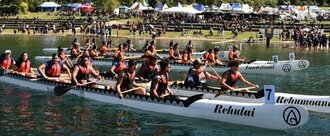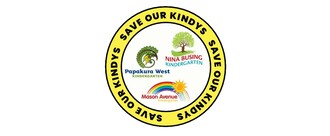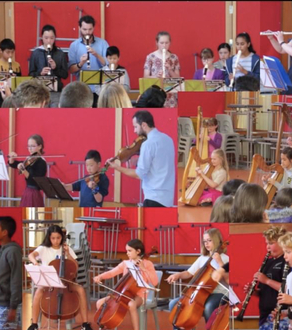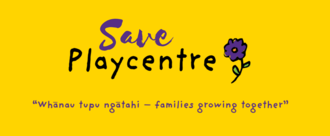-
Make Waka Ama an Olympic sportWaka ama is significantly and widely practiced in new zealand, tahiti and hawai'i. The level of competition is high throughout Te Moana Nui a Kiwa and the sport is still going strong despite Covid-19. There is cultural recognition of mana in the sport, outrigger canoe racing is a competitive and dominant sport, widely seen as good spectating friendly, the skill and technique is robust hard and fast, power and speed. Races: Midgets: W6 250m Intermediates: W6 500m straight & W6 500m turns / W1 500m & W1 250m dash J16s: W6 1000m turns & W6 500m straight / W1 500m & W1 250m dash J19s: W6 1000m turns & W6 500m straight / W1 500m & W1 250m dash Opens: W6 1000m turns & W6 500m straights / W1 500m & W1 250m dash Masters: W6 1000m turns & W6 500m straights / W1 500m & W1 250m dash29 of 100 SignaturesCreated by Pareoranga Te Kata

-
Retain Media Studies at NCEA Level 1Given that the recent coronavirus pandemic has revealed glaring gaps in media literacy and has forced a massive increase in media consumption, the fact that a subject specifically designed to inform young people about this in a more comprehensive and subject-specific way than other "traditional subjects" is being removed is only likely to intensify this. Chris Hipkins himself complained about the misinformation going around so the fact that his Ministry is doing this implies that either he isn't sincere about solving the problem or lacks the foresight required to do so. To be clear, this is not to demean the subjects that were retained such as History or Geography (many Media Teachers would have taught one or the other at some point in their careers) or to place Media above other subjects that were removed, but rather a criticism of the narrowing of the choices available for our learners in a world where new disciplines are created at a regular basis. While their own media release claims "Feedback from thousands of stakeholders was factored into the Level 1 subject changes, which will be introduced from 2023" it is clear that this decision ignored the feedback from a sizeable number of Media teachers. Their suggestion that these subjects are taught as contexts for Social Studies (or English) comes with a number of flaws: 1) if the proposed changes to English and Science are any indication, then it's very likely that it will be difficult to form a Media Studies course without having to force students to severely narrow their choices of Social Sciences. How will they be able to do this if standards have to be reused across courses? All that this will achieve is more competition and conflict between teachers of these subjects. 2) Media Studies itself blends specific content knowledge with theory and concepts ranging from economics, sociology, psychology, literary theory, audience theories and so much more, meaning that to pigeonhole it as just another version of another subject is to heavily dilute it. 3) the numbers that many Media Studies departments have spent years trying to build are likely to drop and the broad and varied nature of NZ education is going to be watered down by this attempt to pick and choose the important foundations that our students need to function in the modern world. So to sum up: if you think that it's important for our learners to be able to learn early on about the media that surrounds them, then sign this petition.511 of 600 SignaturesCreated by B Uy
-
Save Our Kindys – Keep The Kindergarten Experience Alive!This petition is to demonstrate that the operational changes to be made to Mason Avenue Kindergarten, Nina Busing Kindergarten and Papakura West Kindergarten are not supported by families and the community. The Counties Manukau Kindergarten Association (CMKA) have been rolling out operational changes to all the kindergartens, which has resulted in the loss of the traditional kindy model. If this is not stopped, the last three kindergartens yet to change will be open from 8am – 3:30pm/5pm and will operate throughout the school holidays. Key points: • The quality of teaching and learning will be negatively affected by these operational changes. • Introducing multiple sessions and flexible drop off and pick up times will change the structure and create an unsettling environment for children. • Parents send their children to kindergarten to receive high quality early childhood education under a play based model that reflects the school day. • Longer hours for children - we believe the six hour session time of 8:30am – 2:30pm is long enough for 3-5 year olds. Current research supports this. • The kindergarten will be required to fill the spots for the extra hours so that funding is maximised. • Children need the holidays to rest and recharge, as do the teachers. • Kindergartens have long attracted high quality teachers and risk losing their staff due to unfavourable working conditions. • The choice parents have in regards to early childhood education is removed. A traditional kindergarten is different from a privatised daycare model. There are numerous other childcare centres in Franklin that have longer opening hours and availability during term breaks. • There will no longer be term breaks and fee paying families must continue to pay, regardless of whether their child attends or not. We strongly believe these changes are not in the best interests of our children and community. We propose that the CMKA responds to the community and Mason Avenue Kindergarten, Nina Busing Kindergarten and Papakura West Kindergarten continue to operate as a traditional kindergarten by keeping the current hours of 8:30am – 2:30pm and not operating during term breaks. These three centres are considered highly functioning kindergartens with large waitlists, active parent communities and strong fundraising capabilities - why fix something that isn’t broken? We will deliver the petition directly to CMKA CEO Calmar Ulberg and The Board of Management.727 of 800 SignaturesCreated by Jody Christie
-
Save the Wellington Music CentreSaturday morning music has been a New Zealand institution since 1957. It provides an opportunity for kids from all sorts of backgrounds, who otherwise wouldn’t be able to afford lessons, a chance to learn an instrument and to develop into life long musicians. Wellington Music Centre is funded through the Ministry of Education’s out of hours programme, providing lessons and affordable instrument hire to any child up to high school, in Wellington. Closing the Centre will prevent kids from discovering their musical passion and make the Wellington music scene less diverse and inclusive. Island Bay School must make efforts to find another solution to any problem it has hosting the Centre. One that continues the long lasting positive impact on kids in Wellington, the cultural capital. We ask the School to keep it open and work with the Education Ministry, the community and other experts on ways to manage their administration problems. The solution needs to allow the children of Wellington access to affordable lessons.577 of 600 SignaturesCreated by Louis Holland

-
Open Letter: Five To ThriveToo many of our children in Aotearoa are missing out on the basics they need to thrive. With political will, we can change this to ensure all of our children have a bright future. We are asking our friends, whānau, and colleagues - Kiwis that care about our children, to sign on to this open letter to ask that every child in Aotearoa gets the five basics they need to do well now, and into the future. To find out more, check out Five To Thrive https://www.fivetothrive.nz/ To keep you updated with the campaign your signature details will be shared with the four organisations leading this campaign; Barnardos, Save the Children, Te Kāhui Mana Ririki Trust, and Whānau Āwhina Plunket.610 of 800 SignaturesCreated by Five To Thrive

-
Consent Education should be compulsory for First-Year Tertiary StudentsIn a world free from sexual violence, students would be able to learn and achieve, without fear, harm or violence. Students would be able to walk through campus, attend lectures, engage in tutorials, knowing that they are valued, respected, and treated equally. Starting tertiary study is an important time in a young person's life, and sets them up for their entire life course 'pipeline'. When a student faces barriers or trauma during their study, it often has lifelong ripple effects and consequences. Recent research shows that 1 in 3 students will experience sexual harm during study [1], and this mirrors Thursdays in Black's own findings, which highlighted that over 50% of participants had experienced some form of sexual harm during study [2]. Research on wider populations shows that in Aotearoa, 1 in 3 women, 1 in 6 men, and 1 in 2 transgender people will experience sexual harm. Research also shows that women, Māori, Queer/Takatāpui, and disabled students are at significantly higher risk of experiencing harm in comparison to other identities, and that 90% of sexually harmful situations happen between people that know each other, for example friends, relationships, colleagues, or family. At Thursdays in Black, our vision is to improve these circumstances, by mandating sexual consent education for first years students. This education will empower young people by giving them the skills to navigate and create their own healthy sexual relationships, help prevent harmful behaviours, and contribute to the ongoing culture change of tertiary institutions. By teaching these skills to students aged 17-20, we will be setting them up with a kete of tools that will benefit them throughout their life, and help make our communities safer. Yet at present, there is no legal requirement for tertiary institutions to offer compulsory courses to teach students about sexual consent. New Zealand institutions currently have a fragmented approach to consent education, with different institutions offering different levels of engagement, different approaches, and some with out any programmes at all. At Thursdays in Black, we believe that Aotearoa can do better, and see that implementing such an education policy as not only urgent, but long overdue. We request that the Minister pass legislation requiring tertiary institutions in Aotearoa to provide sexual consent education to all first-year tertiary students. Such education should be a research-based program, created with and facilitated by subject matter experts and the sexual violence sector, it should engage student leaders, operate on a bi-cultural model that upholds Te Tiriti o Waitangi, and reflect an intersectional approach that respects the disproportionate impact sexual violence has on specific groups. Tertiary institutions, for the most part, remain out-dated and traditional in their thinking -- often reinforcing a rape culture of power imbalances, misogyny, and toxicity. This does not make a safe environment for our tertiary students. Help make education safe. Sign the petition today to call on the Minister to implement compulsory consent courses for first-year students. 1. Unpublished Phd Thesis by Kayla Stewart, for a preliminary discussion of her findings, see https://www.stuff.co.nz/national/113090659/a-third-of-women-university-students-report-being-sexually-assaulted-what-do-we-owe-them 2. In 2017, Thursdays in Black Aotearoa conducted a report titled ‘In Our Own Words’, which details the extent to which tertiary students experienced sexual violence prior to, and during, their studies You can find it here: https://library.nzfvc.org.nz/cgi-bin/koha/opac-detail.pl?biblionumber=5557922 of 1,000 SignaturesCreated by Jahla Lawrence
-
Save our school librariesThe School Library Association of New Zealand Aotearoa (SLANZA) is launching a nationwide campaign to highlight the plight of our school libraries. SLANZA is deeply concerned about the demise of school libraries in Aotearoa. It is estimated that of the 2500 schools in New Zealand only 900 have a library. Stuart McNaughtons recent report entitled “The literacy landscape in Aotearoa New Zealand” states that 52% of 15 year olds only read if they have to and 28% think reading is a waste of time. Yet his report did not mention School Libraries once and we know from international research that schools with a well-resourced library and specialist library staff positively impacts learning outcomes across all year levels. Our libraries are being closed, relocated to hallway cupboards, are having budgets slashed. We have low decile high schools trying to raise literacy rates but can only fund their library $1000.00 a year to operate and are buying books from Op Shops to stock the shelves. These stories are not acceptable in New Zealand. SLANZA believes that all school students in New Zealand, at every level of their education, should have access to effective school library services that will support their reading and learning. We plan to promote the value and necessity of every student having access to a school library, supported by a specialist librarian with a budget and hours to provide a high-functioning learning environment within all school communities in Aotearoa New Zealand. The Ministry of Education will mandate every student to have access to a school library staffed by specialist school librarians and is Ministry of Education funded. We know school libraries make a difference for our students for their well being, hauora, their learning outcomes, their ability to critically analyse and their growth in empathy. School libraries transform and we in this campaign will be informing our nation of the lack of funding, space and staffing within our school libraries. We want the government to listen and to act, so our school libraries can be resourced fully to continue to transform the lives of all of our students. Our campaign will be launched on September 1st and is called “School Libraries Transform.” Please refer to our website for further information pertaining to our campaign. http://www.schoollibrariestransform.org.nz/6,944 of 7,000 SignaturesCreated by Sasha Eastwood-Bennitt
-
Respect and value ECE teachers - stop Evolve’s exploitative contracts!Teachers in one of our biggest early childhood corporations are fighting a new contract that could cut their guaranteed hours and income by 50%. Please stand up and support them! In one of the worst examples of how broken New Zealand’s early childhood education system is, Evolve Education – which continued to get full government funding through the Covid-19 lockdown and got millions in wage subsidies – is asking hundreds of teachers to sign new contracts guaranteeing them just 20 hours of work a week. What’s worse, Evolve would require them to be available for a further 20 hours a week - with no compensation for this availability and no chance to earn an income elsewhere. This is unfair and unlawful Evolve owns Lollipops, Active Explorers, Learning Adventures, Pascals, Little Earth, Little Lights and Little Wonders. This contract would impact on the quality of teaching and consistency of relationships with thousands of young children. Many teachers in Evolve are refusing to sign the contracts – but we need your support. We want to stop this now before it leads to further diminishing of quality teaching and working conditions across the whole ECE sector. We are taking a stand to protect the quality of teaching and learning for children, and to protect basic working conditions for all ECE teachers. And we’re angry that in spite of increased Government funding for ECE services in May’s Budget, there’s still a pay gap of more than 24% between ECE teachers and our colleagues in kindergarten and schools. Sign this petition asking the Government to step in urgently to stop the new Evolve contracts and to change the system to protect children and teachers everywhere.5,765 of 6,000 SignaturesCreated by Virginia Oakly
-
5-Point Grade Bump for VUW StudentsThe impacts of COVID-19 on student health, wellbeing and academic success have been wide and varied. Many of us have lost our jobs, had our lives drastically changed, or had our mental health severely impacted as a result of greater financial uncertainty and academic pressure. We have been expected to work and thrive in conditions that are not conducive to academic success. We believe for the sake of student wellbeing, equity, and compassion, the University needs to listen to the voice of the student body and implement these changes for Trimester 1. We ask the University to consider the impact on equity between Victoria students and those of other Universities. A lack of parity between ourselves and Universities such as Otago and Auckland will impact our graduates who are seeking employment in a post-COVID world. In addition, graduates seeking to pursue further education at another University will also struggle, and their chances of receiving financial aid will suffer. VUWSA believes that a grade bump would ensure that VUW students are on equal footing with other universities who have adopted this measure. If this grade increase, alongside other equity measures – such as reduction of course workload, and 2-week extensions on assignments – are comprehensively implemented, VUW students can be assured that their academic success, as well as their health and wellbeing, are at the forefront of the university’s mind. VUWSA, alongside other student representatives, have been advocating through our internal avenues for these measures to be put in place. In many of these meetings we have been part of a small minority of students, often being ignored or shut down regarding this issue. The recent uproar of student voices around this issue have demonstrated the need for greater academic support and communication for those studying at Victoria University of Wellington. For the sake of our wellbeing, equity, and compassion, we call on the University to listen to, and act upon, the concerns of their student body. For more information check out VUWSA’s socials https://facebook/vuwsa or email [email protected].7,355 of 8,000 SignaturesCreated by VUWSA Campaigns
-
An Open Letter to save PlaycentrePlaycentre is the embodiment of New Zealand's Early Childhood curriculum, Te Whāriki*. The principles of this bicultural curriculum are: - Family and community - Relationships - Holistic development - Empowerment For many families, Playcentre has supported generations of children to pursue creativity through child-led play. Another key role local Playcentres play is to enabling smooth transitions to schooling and building a sense of community. *https://www.education.govt.nz/assets/Documents/Early-Childhood/Te-Whariki-Early-Childhood-Curriculum-ENG-Web.pdf https://www.newshub.co.nz/home/new-zealand/2020/05/playcentres-threaten-closure-over-lack-of-government-funding.html16,191 of 20,000 SignaturesCreated by Sophie Handford
-
Launch an independent inquiry into residential student accommodation1) Firstly, the legislation that governs residential student accommodation is insufficient, confusing, and unclear. Residential student accommodation is not covered by the Residential Tenancies Act (RTA), meaning that in the case of disputes between residents and their accommodation provider, the option of going to the Tenancy Tribunal is not available to them. Relatively, the power imbalance between a tertiary student and a student accommodation provider is much larger than that between individual tenants and landlords. Because of this, we believe that the lack of option of disputes to be heard by the Tenancy Tribunal is damaging to a students’ access to redress. The Interim Code of Practice for Pastoral Care which was introduced in 2019 also makes no real substantive change. Most of the processes specified already encompass what is going on in halls around New Zealand. This piece of legislation was designed to improve pastoral support and is not sufficient to solve the deeper issues raised here. There needs to be more specific legislation governing halls of residence to ensure the safety of students who reside there. The lack of central government regulation creates inconsistent approaches within the system of residential student accommodation. This is not only apparent in different managements of accommodation within a single tertiary provider, but also between tertiary providers. 2) Secondly, the purpose and function of residential student accommodation is unclear and inconsistent. The lack of central government legislation to support the delivery of residential student accommodation blurs the purpose of the service; is it to make the tertiary provider a profit, or is it to provide a service to students to support their education? While some tertiary providers operate their residential student accommodation services to not make a profit, other tertiary providers appear to use residential student accommodation for the purpose of money making. Often this is done in partnership with external companies, who own and/or operate the accommodation facilities. The blurred purpose or function of student accommodation is not just limited to halls of residence accommodation for high-school leavers. Irrespective of the type of residential student accommodation (i.e. catered or self-catered accommodation), the overriding purpose and function of residential student accommodation should be the same and should be clear to those using the service. The varying degrees of rental alleviation that residential students across the country received from their accommodation providers during Levels 3 and 4 of the COVID-19 lockdown has sharply highlighted how inconsistent the sector is, and raises questions around who the setup is designed to benefit. 3) Thirdly, student welfare and support within residential student accommodation is limited and inconsistent, for both staff and residents. Student welfare and pastoral care within residential student accommodation is largely delivered by Residential Assistants (RAs). RAs receive very limited remuneration (if any), often work more hours than they are paid for, and despite trying to do their best in difficult situations, receive very limited training or support. This has a flow-on effect to residents, who often do not receive the necessary support to deal with issues that arise. The type of work that RAs do can be equated to the job of a Youth Worker, but without the training and salary. Almost all of their weekly paycheck goes towards paying their accommodation fees, meaning they are left with little money at the end of it, if any at all. Furthermore, an overwhelming proportion of RAs are students themselves, and the burden of responsibility on them to support hundreds of other students through often difficult circumstances, with little to no higher support for themselves, lays bare the harrowing ordeals that these providers put them through. Incidents of sexual harassment in halls of residence, and the lack of pastoral support to students who are struggling with mental health, have demonstrated the inadequacy of ongoing training and support provided to these students placed in positions of pastoral care. Currently, there is little to no legislation protecting RAs. There are also no guidelines for other supports for residents at student accommodations, such as Student Support Coordinators (SSCs). This means that often SSCs are assigned more than one hall, and more than a thousand students. The quality of their work therefore is lowered, as they are stretched out in capacity. We call on the Education and Workforce Select Committee to conduct an independent inquiry into the purpose and operations of residential accommodation in Aotearoa, and the legislation that governs it. This inquiry should be broad in scope, examining the investment and funding models, the cost of accommodation for residents, the legal protections for residents, and support structures for residents.432 of 500 SignaturesCreated by NZ Union of Students' Associations (NZUSA)

-
Universal Education Income / Te Rourou Matanui-a-Wānanga1) STUDENTS ARE IN POVERTY Right now, tertiary students are in poverty. The poverty that students experience is a result of years of successive governments eroding the financial support that tertiary students have access to. The COVID-19 crisis has exacerbated the economic vulnerability that students face. Students have lost the part time jobs that provided essential weekly income to cover weekly expenses like rent, power and food. Many of the jobs that students in the gig economy, tourism and hospitality disappeared overnight, too early for them to be rehired by their employer to qualify for the Wage Subsidy. The Tertiary Support Package announced by the Government on 14 April 2020 fails to address this poverty. Increasing the amount of course related costs for domestic full-time students from $1,000 to $2,000, only increases student debt, and fails to provide relief in the areas of hardship that students face, simply because this money is not able to be spent on accommodation or food costs. It is also unable to be accessed by part-time students, many of whom relied on employment, they now don’t have, to make ends meet. One student says: “...I don’t know what to do, I’m barely managing to pay my rent, I can’t pay power, I can’t afford nutritional food, I can’t even afford to buy warm clothes now that it’s getting colder. I don’t have much in the way of clothes as it is and most don’t fit me anymore. I spend more time in bed trying to keep warm because of lack of clothes and not being able to afford power.” 2) STUDENT DEBT CRISIS We have a student debt crisis in New Zealand. Student debt in New Zealand continues to climb to unprecedented levels, surpassing $16 billion this year despite the student loan scheme being introduced in 1992. For students who borrow living costs on top of course fees, in order to survive while they study, effectively double their student loan every year. The student debt crisis impacts the lives of prospective students, current students and graduates. It creates a significant barrier that deters many prospective students from accessing the opportunities post-secondary education provides, especially from lower socio-economic communities. Money should not determine one’s ability to further their education. Research shows that student debt places harmful mental pressures on current students, affecting their wellbeing, academic performance and political participation. Upon completing their tertiary studies, research highlights that graduates experience the full weight of their crippling student debt when 12.5% of the income is deducted each week, and their ability to start a family, buy their first home or travel overseas is greatly restricted for many years after graduation. Students are being buring in debt before they even get started. Students should not be forced to take on a debt sentence to access education that will benefit communities across Aotearoa. 3) EDUCATION IS THE KEY TO THE RECOVERY Prime Minister Jacinda Ardern has said that “education will be key to our economic recovery”. We agree. However, the week-to-week cost of being a tertiary student is a barrier for many people wanting to begin studying for the first time or re-train, especially given that many people have lost their jobs as a result of COVID-19. This is especially the case for people with dependents, or people who are already vulnerable in our society. Donna, a full-time nursing student and solo mother is one of these students who is just scraping by. In a few years, Donna should be a qualified nurse, saving New Zealanders lives and contributing to New Zealand’s economy. She won’t achieve her dreams without additional government support. For education to be universally accessible, we must have a universally accessible system of support. SUPPORTED BY New Zealand Union of Students' Associations, Te Mana Ākonga and Tauira Pasifika PROOF THAT A UNIVERSAL EDUCATION INCOME IS ACHIEVABLE? In response to the hardship that tertiary students in Canada have experienced from COVID-19, the Canadian Government has implemented an equivalent Student Benefit of $1,250 per month for eligible students and $1,750 for students with dependents or disabilities. The tertiary education policy of New Zealand First and the Green Party both include a universal student allowance, which is the equivalent of Universal Education Income / Te Rourou Matanui-a-Wānanga. REFERENCES AND MORE INFORMATION: ‘Why increasing student debt is not a support package’ https://thespinoff.co.nz/society/16-04-2020/why-increasing-student-debt-is-not-a-support-package/ Student Benefit in Canada https://www.canada.ca/en/department-finance/news/2020/04/support-for-students-and-recent-graduates-impacted-by-covid-19.html Tertiary Support Package announced by the Government https://www.beehive.govt.nz/release/covid-19-tertiary-student-support-package NZUSA Income and Expenditure Report 2017 http://www.students.org.nz/studentreport NZUSA Kei Te pai? Report 2018 http://www.students.org.nz/mentalhealth Student Loan Scheme Annual Report 2019 https://www.educationcounts.govt.nz/publications/series/student_loan_scheme_annual_reports/student-loan-scheme-annual-report-2019 Green Party Tertiary Education Policy https://www.greens.org.nz/tertiary_education_policy New Zealand First Tertiary Education Policy https://policy.nz/topic/Education#Tertiary%20Education ‘Crushing student debt is putting students off political action’ https://www.newshub.co.nz/home/shows/2019/09/crushing-student-debt-putting-kids-off-getting-political-author.html Student Debt and Political Participation by Sylvia Nissen https://www.bwb.co.nz/books/student-political-action https://www.palgrave.com/gp/book/9783319963211 Photo: Trinity Thompson-Browne (@trin_tb)5,205 of 6,000 SignaturesCreated by NZ Union of Students' Associations (NZUSA)












.png)
